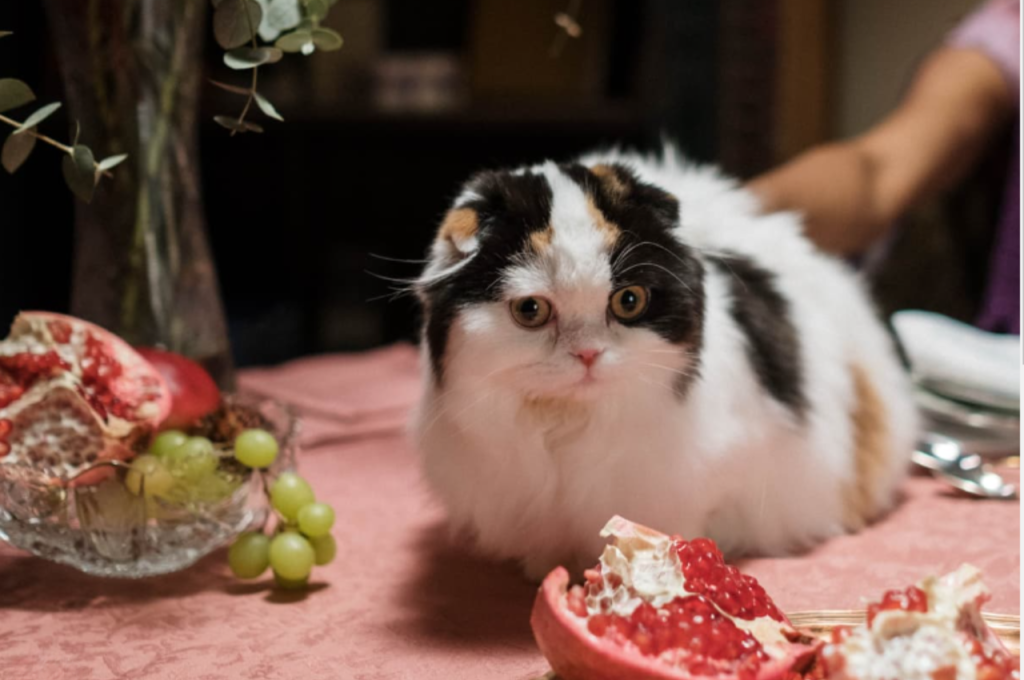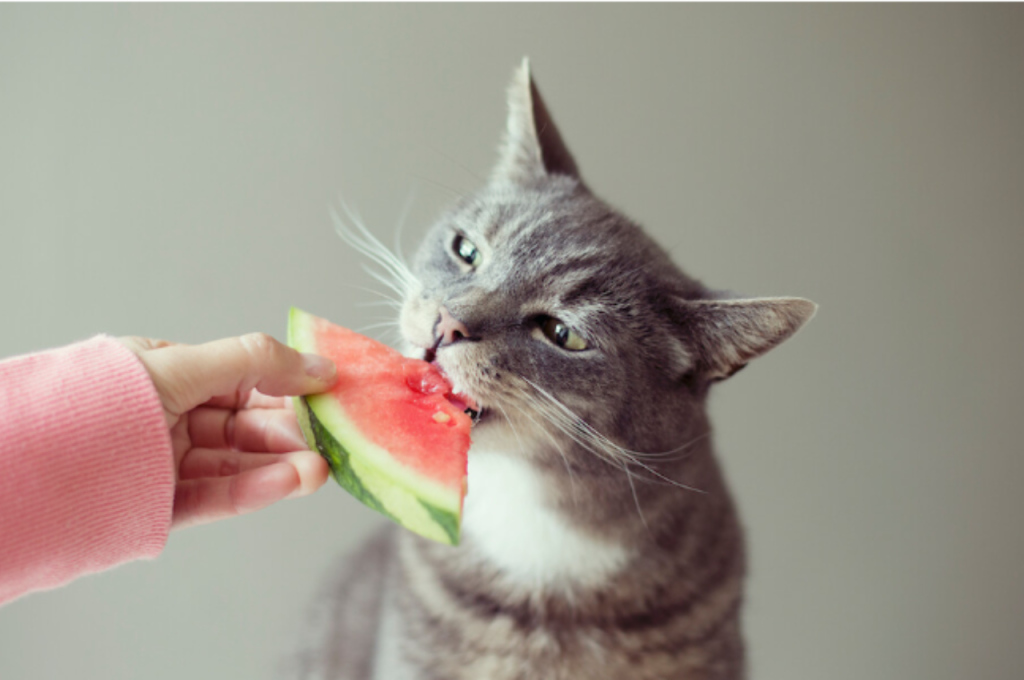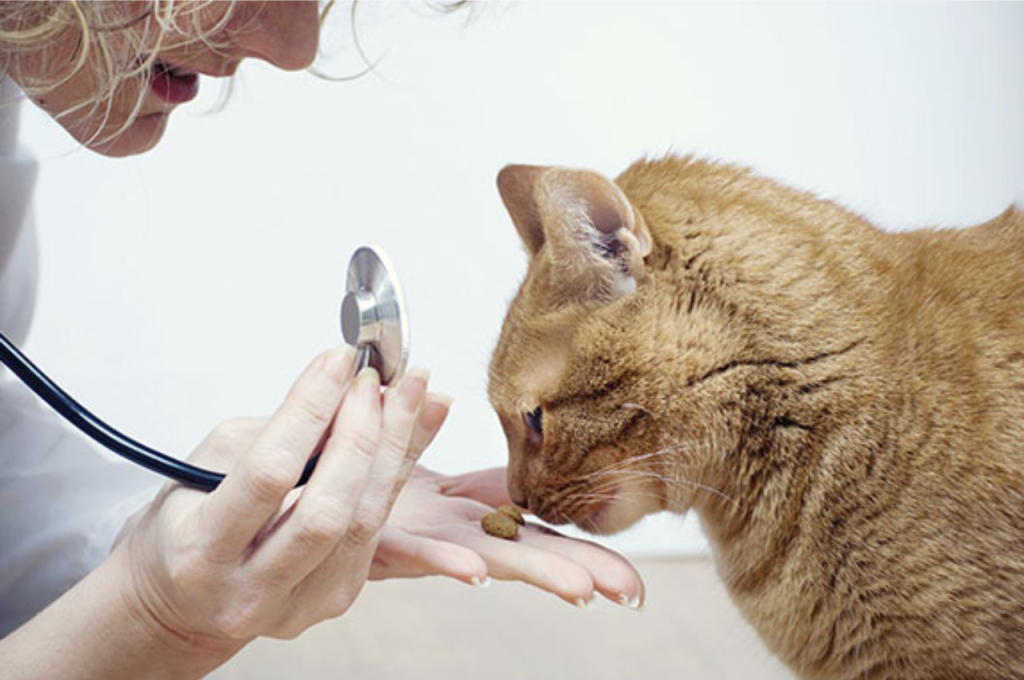Cat-safe fruits include apples, blueberries, and bananas. They are safe for feline consumption.
Cats can enjoy certain fruits as treats, such as apples packed with fiber and blueberries rich in antioxidants. Bananas are another option, providing vitamins and minerals. It’s important to feed fruits in moderation and always remove seeds, pits, and any toxic parts before offering them to your cat.
Ensuring a balanced diet and consulting your veterinarian is crucial to incorporate fruits safely into your cat’s nutrition. Remember, while fruits can be a tasty addition, they should not replace a cat’s primary diet to protect their overall health and well-being.
Understanding Cat Dietary Needs
Cats have specific dietary requirements that differ from humans. It is crucial to understand what fruits are safe for cats to consume to meet their nutritional needs.

The Importance of A Balanced Diet
Cats need a balanced diet for optimal health. A proper diet includes proteins, fats, vitamins, and minerals to support their overall well-being.
Specific Nutrients Essential for Cats
Certain nutrients are vital for cats, such as taurine, essential amino acids, and vitamin A. These play a key role in maintaining their health.
Cat-safe Fruits: A Comprehensive List
Cats are curious creatures and can sometimes get into things they shouldn’t. When it comes to fruits, it’s important to know which ones are safe for cats to consume. By understanding the cat-safe fruits, you can provide your feline friend with a nutritious treat without worrying about their health.
Safe Fruits for Cats
Many fruits are safe for cats to enjoy in moderation. These include:
- Apples
- Blueberries
- Strawberries
- Watermelon
These fruits are not only safe for your cat but also packed with essential vitamins and minerals that can benefit their overall well-being.
Fruits to Avoid
While some fruits are safe for cats, others can be harmful to their health. It’s important to be aware of fruits that are toxic to cats, such as:
- Grapes
- Raisins
- Cherries
- Citrus fruits
These fruits can pose various health risks to cats, including kidney failure and digestive issues. Therefore, it’s crucial to keep them out of reach of your feline companion.
Introducing Fruits to Your Cat’s Diet
Introduce cat-safe fruits to your feline friend’s diet to provide essential nutrients. Apples, bananas, and blueberries are among the fruit options that can be added to your cat’s meal plan for a balanced and healthy diet.
Fruits can be a delicious and nutritious addition to your cat’s diet, offering a range of vitamins, minerals, and antioxidants. However, it’s crucial to introduce new foods gradually to monitor your cat’s response and ensure their safety. When considering adding fruits to your cat’s diet, you’ll need to follow a gradual introduction process and be vigilant about monitoring your feline friend’s reaction. Here’s a closer look at these steps for introducing fruits to your cat’s diet. Gradual Introduction Process It’s important to introduce new fruits to your cat’s diet slowly and in small portions. Start with a small piece of fruit and observe your cat’s reaction closely. You can gradually increase the portion size over time, but always be mindful of any adverse effects or allergies that may arise.
Health Benefits of Feline-friendly Fruits
While cats are obligate carnivores with specific dietary requirements, some fruits can offer health benefits when incorporated into their diet in moderation. From providing essential vitamins and minerals to promoting digestive health, feline-friendly fruits can be a nutritious addition to your cat’s diet.
Vitamins and Antioxidants
Cat-safe fruits pack a punch of vitamins A and C, promoting a healthy immune system. Antioxidants found in these fruits help combat free radicals and reduce inflammation.

Digestive Health and Hydration
Feline-friendly fruits aid in digestive health with their fiber content. Hydration is crucial for cats, and these fruits provide a source of moisture.
Potential Risks and Precautions
Discover which fruits are safe for cats and learn how to keep your furry friend protected from potential risks. Find out more about cat-safe fruits and the precautions you should take to ensure your cat’s wellbeing.
Allergies and Intolerances
Allergies and intolerances can occur in cats, just as they do in humans. While fruits are generally safe for cats to consume, it’s important to be aware of potential allergens that can cause adverse reactions. Some cats may experience allergic reactions to certain fruits, which can manifest as skin irritations, itching, or gastrointestinal issues. Intolerances can also occur, leading to digestive upset or diarrhea.
Moderation and Portion Control
Moderation and portion control are crucial when it comes to feeding cats fruits. While small amounts of certain fruits can provide nutritional benefits, it’s important not to overdo it. Cats have a limited ability to break down and digest fruits due to their natural carnivorous diet. Feeding fruits in excess may lead to digestive issues or an upset stomach. It’s recommended to offer fruits as an occasional treat or a small part of their diet, ensuring it doesn’t make up a significant portion of their meals.
When introducing fruits to your cat’s diet, start with small portions and carefully monitor their reactions. If your cat shows any signs of discomfort or allergies, it’s best to consult with a veterinarian.
Additionally, it’s important to remember that not all fruits are safe for cats. Some fruits, such as grapes and raisins, can be toxic to cats and should never be fed to them. Always research and verify the safety of a specific fruit before offering it to your feline companion.
Incorporating Fruits into Homemade Cat Treats
When considering incorporating fruits into homemade cat treats, it’s important to be mindful of what is safe. Blueberries, bananas, and apples are cat-friendly fruits to include in homemade treats. These fruits provide essential nutrients and can be a delicious addition to your cat’s diet.
Creating Safe and Tasty Treats
Fruits can be a delightful addition to your homemade cat treats, but not all fruits are safe for feline consumption. Keep your furry friends safe by opting for cat-friendly fruits such as:
- Berries
- Melons
- Apples (without seeds)
These fruits can provide vital nutrients for your cat while satisfying their taste buds. Ensure to remove any seeds, pits, or stems that could be harmful.
Recipes and Serving Suggestions
When creating fruit-based cat treats, consider these easy and safe recipes:
- Berry Delight: Mix mashed blueberries with yogurt and freeze them into bite-sized portions.
- Melon Meow-pops: Blend watermelon chunks with a splash of water and freeze in ice cube trays.
- Apple Crunchies: Thinly slice apples, remove seeds, and bake at low heat until crispy.
Present these treats to your feline friend in moderation, ensuring they are well-received and enjoyed. Treats should complement their balanced diet, not substitute for it.
Consulting Your Veterinarian
When determining what fruits are safe for your cat to consume, it is crucial to consult with your veterinarian. Their professional input on your cat’s diet can greatly help in making informed decisions and ensuring your feline friend maintains optimal health and well-being.

Your veterinarian possesses the expertise and knowledge necessary to guide you in selecting the right fruits for your cat. They can offer valuable advice based on your cat’s specific needs, taking into account factors such as age, individual health conditions, and any dietary restrictions.
Additionally, your veterinarian can suggest fruits that are not only safe but also nutritionally beneficial for your cat. They can inform you about the appropriate serving size and frequency to prevent overconsumption, as some fruits can be high in sugar or other potential hazards.
When considering what fruits are safe for your cat, it is important to take into account their overall health and individual dietary needs. Certain health conditions, such as diabetes or kidney issues, may require specific dietary modifications, potentially limiting the variety of fruits your cat can safely consume.
Moreover, some fruits might pose a choking hazard or contain toxic substances that can be harmful to cats. Raisins, grapes, and citrus fruits, for example, should generally be avoided. Your veterinarian can guide you in identifying potential risks and provide alternative options that are safe for your beloved pet.
When it comes to determining what fruits are safe for your cat, consulting with your veterinarian is paramount. Their professional input ensures that you make informed decisions based on your cat’s individual needs and health considerations. Remember to always prioritize your cat’s well-being when introducing new fruits into their diet.
Conclusion
To ensure your feline friend’s safety, always check before offering fruit. A balanced diet is essential for cats, but not all fruits are suitable. Stick to cat-friendly options like apples, blueberries, and watermelon.
Remember, moderation is key. Prioritize your cat’s well-being by making informed choices when it comes to their diet.
